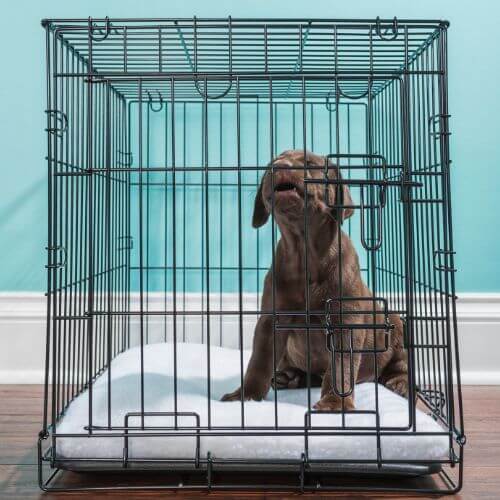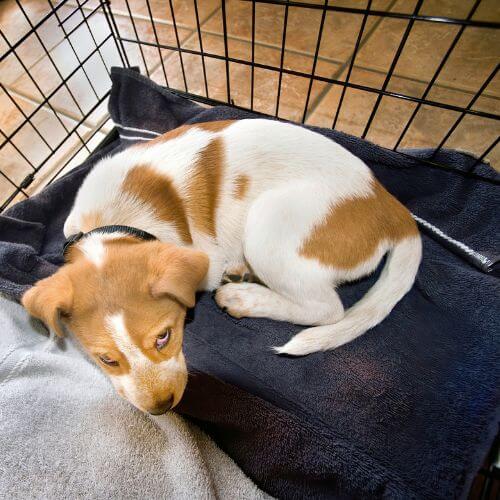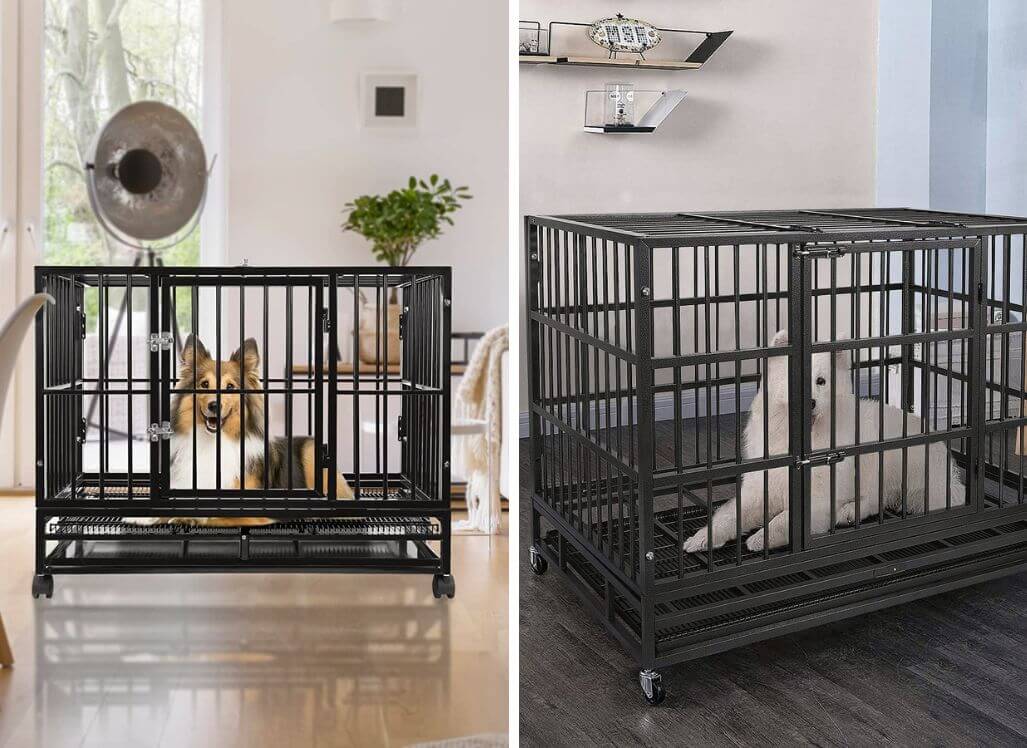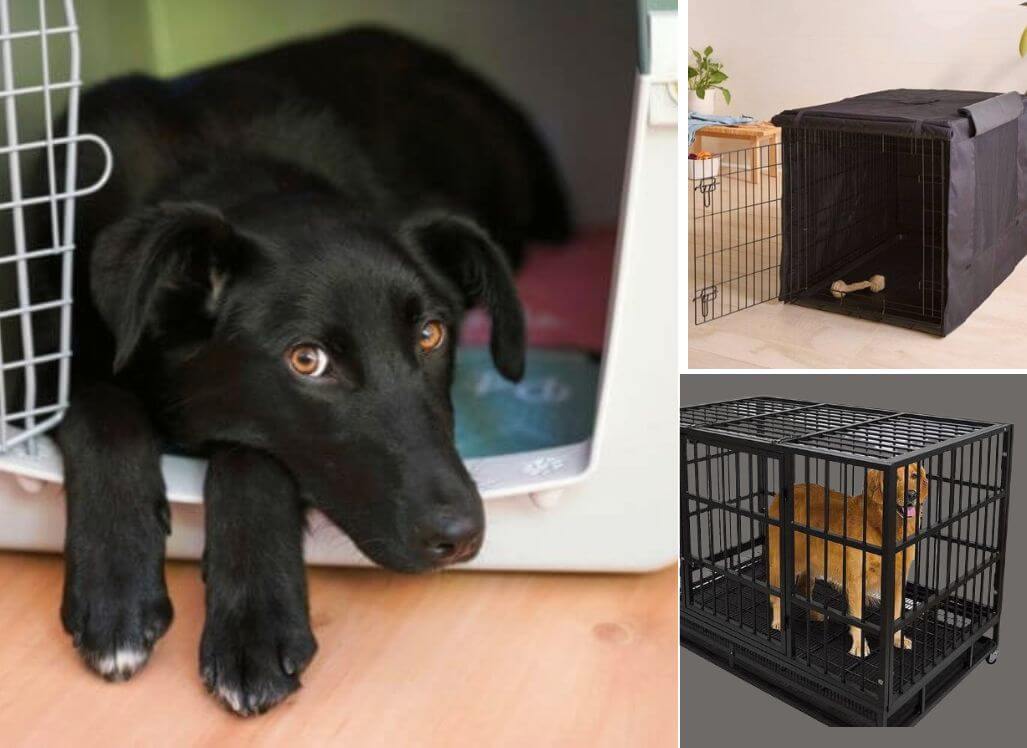Crate training can be a great way to help dogs, especially those with anxiety, learn how to cope with stressful or uncomfortable situations. Not only is it an effective way of teaching a dog how to stay calm and composed when faced with certain triggers, but it also offers other benefits as well.
A Safe Space for Your Dog

Dogs have an instinctual desire for den-like environments. Whether it's a cozy crate or a makeshift hideaway under the bed, these small and secure spaces provide a sense of comfort and security for our four-legged friends.
So firstly, and most importantly, a crate gives the dog its own safe space. It's a place where they can retreat in order to feel secure and relaxed. It encourages them to develop their own coping mechanisms that help them manage any feelings of stress or discomfort that may arise. As a result, this helps them become better at managing their own emotions and reactions in a more positive manner.
In situations that may be anxiety-inducing, like loud thunderstorms or the presence of unfamiliar guests, a den-like space can offer a safe retreat and help alleviate anxiety.
Provides Comfort and Security for Your Dog

Providing your pup with her own secure space in which to retreat, can help her feel comforted when faced with unfamiliar places or people. This can be a great way to help her feel more secure and at ease while traveling or visiting new places, as she will have her own safe space that she can retreat to if needed.
Knowing that they have somewhere safe to retreat during particularly stressful times will make them feel more secure and trusting in their environment. The safety provided by the crate will allow your anxious pup to relax more and build confidence in themselves as well as trust in you as their owner.
If you're a dog owner, you likely know how difficult it can be to leave your furry friend home alone. It can be tough on both you and your canine companion. Not only does a crate provide a secure space for your dog while you're away, but it can also be a source of comfort and familiarity for them when they're feeling lonely. By providing a cozy den-like area that your dog can recognize as their own, you're creating a safe haven for them while you are away.
Keeps Your Home Safe from Destruction

If you own a pup that struggles with anxiety, you know that their destructive behaviors can be a real headache. When you leave the house, you never know what kind of damage they might cause.
Crating your furry friend can provide her with a safe and secure environment while also giving her peace of mind. Not only will your furniture and belongings be protected, but your pup will also have a space to call her own.
Additionally, since the crate is a familiar and comfortable place for your pup, she will be less likely to bark or howl while you’re away.
Not All Dogs Love Crates
It's important to note that not all dogs will love being in a crate or will benefit from using one. It's important to closely monitor your dog and ensure that the crate training process is done in a humane and responsible manner. If done correctly, it can be a powerful tool for calming an anxious pup, as well as teaching them proper behaviors and building trust between owner and pet.
With the right approach and plenty of patience, you can help your pup learn to love their crate, and in turn, reduce their anxiety levels and create a stronger bond between you and your pet.
Conclusion
Overall, crate training can be an incredibly beneficial tool for anxious dogs—it provides them with a safe space while simultaneously teaching them proper behaviors and giving them a sense of security that builds trust between owner and pet alike!
If you feel that your dog needs help with her anxious behaviors, talk to your vet. They know you and your dog. They may suggest other types of training, or medication, or refer you to a clinical animal behaviorist. These experts will help you diagnose the key cause of your issues, and craft a tailored treatment plan specifically designed for your dog.
The most important thing is to remember that every dog is different and individualized training plans should be created accordingly. Be sure to take the time to understand what works best for your pup, as well as how and when to implement it, in order to ensure the best results. Good luck!












